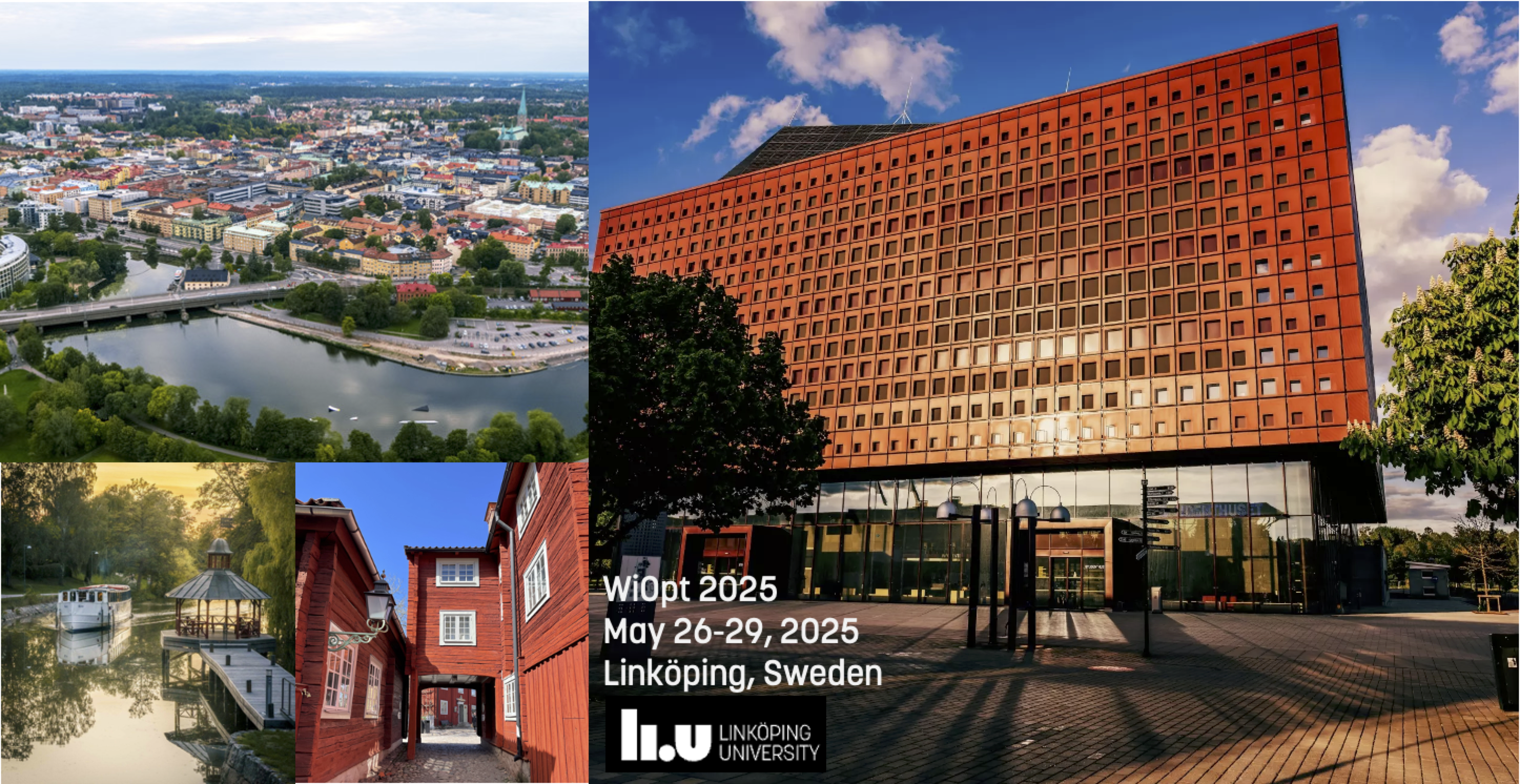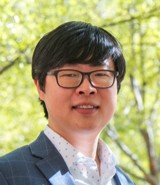
Keynote Speakers
Keynote 1

Abstract: This talk presents recent advances in solving combinatorial online network optimization problems, with a focus on understanding the statistical and computational trade-offs involved. We examine both the sample complexity and the regret associated with these problems. We introduce a learning algorithm that is both statistically optimal and computationally efficient, running in polynomial time. We further develop specialized algorithms for scenarios where the network-wide utility can be modeled as a factor graph. The performance of our methods is demonstrated through numerical experiments, including synthetic benchmarks and real-world applications to optimizing antenna tilt coordination in radio communication networks.
Bio: Alexandre Proutiere is professor at the Decision and Control Systems division in the EECS school at KTH, Royal Institute of Technology (Stockholm, Sweden). His research interests include reinforcement learning, unspervised learning, statistics, stochastic processes, and control; with applications to communication and social networks, and cybersecurity. Before joining KTH, he was a researcher at Microsoft Research (Cambridge, UK) from 2007 to 2011 and at France Telecom R&D from 2000 to 2006, He has also been an invited lecturer and researcher at the computer science department Ecole Normale Superieure (Paris) from 2004 to 2006. He received a PhD in mathematics from Ecole Polytechnique, graduated in mathematics from Ecole Normale Superieure (Paris), and has an engineering degree from Telecom Paris. He was the recipient of an ERC consolidator grant, and in 2009, received the ACM Sigmetrics rising star award.
Keynote 2

Abstract: The rapid advancement of Artificial Intelligence, Control, and Communications technologies has ushered in a new era of goal-oriented communication systems. In this talk, we present a principled framework for quantifying data significance through information-theoretic metrics. These metrics provide a unified perspective for interpreting both information freshness in real-time status updates and the value of data in goal-driven communications. We will further discuss how communication networks can be designed in alignment with the principle of data significance, enabling more effective and efficient goal-oriented communication systems—particularly for networked AI and safety-critical monitoring applications.
Bio: Yin Sun is the Bryghte D. and Patricia M. Godbold Endowed Associate Professor in the Department of Electrical and Computer Engineering at Auburn University, Alabama. He received his B.Eng. and Ph.D. degrees in Electronic Engineering from Tsinghua University, in 2006 and 2011, respectively. From 2011 to 2017, he was a Postdoctoral Scholar and Research Associate at The Ohio State University. His research interests include Semantic and Goal-oriented Communications, Wireless Networks, and Applied AI in Agriculture. He has served on the editorial boards of the IEEE/ACM Transactions on Networking, IEEE Transactions on Information Theory, IEEE Transactions on Network Science and Engineering, IEEE Transactions on Green Communications and Networking, and the Journal of Communications and Networks. Dr. Sun founded the Age of Information (AoI) Workshop in 2018 and has served on the organizing committees of various conferences. He currently serves as the Technical Program Committee (TPC) Co-Chair for ACM MobiHoc 2025. His publications have received several honors, including the Best Student Paper Award at IEEE/IFIP WiOpt 2013, the Best Paper Award at IEEE/IFIP WiOpt 2019, runner-up for the Best Paper Award at ACM MobiHoc 2020, and the 2021 Journal of Communications and Networks (JCN) Best Paper Award. He received the Auburn Author Award in 2020 and the NSF CAREER Award in 2023.